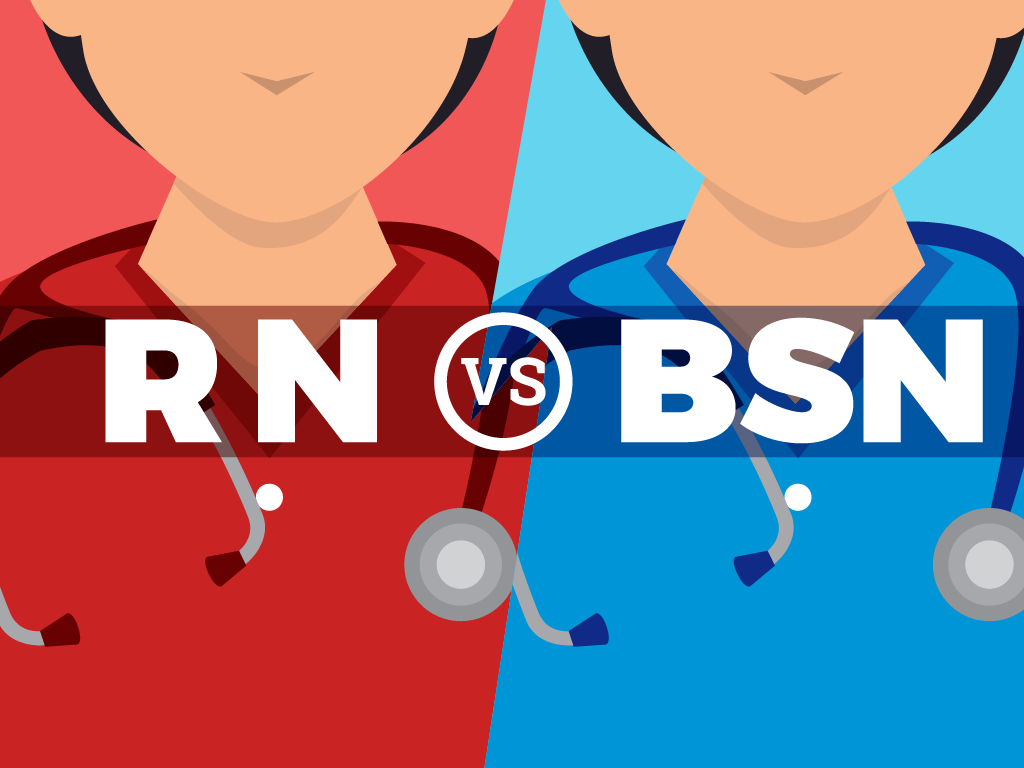RN vs. BSN – What’s the Difference?

In real life, nursing is much more complicated than what you see on TV and in the movies.
There are various different levels of a nursing career as well as different credentials.
To clarify things, we recently shared a blog post that highlighted the differences between an LPN (licensed practical nurse) and an RN (registered nurse).
To take things a step further, we’d like to delve into the differences between an RN and a BSN (Bachelor of Science in Nursing). Let’s take a look.
Firstly, we’d like to point out that comparing these two acronyms isn’t really an apples to apples kind of comparison.
The main difference is that an RN is a job title while a BSN refers to a nursing degree option.
Still, it can be somewhat confusing, particularly to those who are new to the field or considering pursuing a career in nursing.
That said, here’s what you need to know.
Education
The first step in becoming a registered nurse is passing what’s known as the NCLEX exam.
To become eligible to take this exam, you must earn either an Associate’s Degree in Nursing (ADN) or a Bachelor of Science in Nursing (BSN).
The former takes less time, but the latter results in an academic credential that is much more highly sought after by hospitals across the country.
What this basically means is that it’s possible to become an RN without earning a BSN.
With an ADN, you can immediately enter the job market. Or, you may choose to continue your education to earn a BSN degree.
There is also the option to begin your career with your ADN, and then working toward your BSN at a later date.
The path you choose to take will depend on your unique goals and circumstances.
Job Opportunities
As an RN, you can perform the main nursing duties, such as taking patient vitals, charting symptoms, operating medical equipment, educating patients and being an important part of a functioning medical team.
Having a BSN, however, provides nurses with a much greater variety of career opportunities.
For instance, nurses with a BSN perform the same duties as RNs, but they may also decide to become a nurse educator to help prepare the next generation of RNs and LPNs. Or, they may choose to work in public health to educate communities on health issues.
Earning Potential
If you’re interested in nursing, you probably already know that there’s a high demand in that field. In fact, one estimate places jobs for RNs increasing at a rate of 15 percent year over year through 2026.
That means regardless of whether you have an ADN or BSN, the job outlook is pretty impressive.
From an earnings potential standpoint, the US Bureau of Labor and Statistics lists the median salary for RNS at just under $68k.
An RN with a Bachelor’s should expect to earn more than someone with an Associate’s, particularly because of the opportunity to pursue managerial roles or specializations.
Final Word
As you can see, there isn’t necessarily a huge difference between an RN and a BSN.
In reality, a BSN is merely a means by which one can reach their goal of becoming an RN. Whichever path you ultimately choose, whether it’s to stick with a two-year degree or pursue a Bachelor’s, the future seems equally bright.
